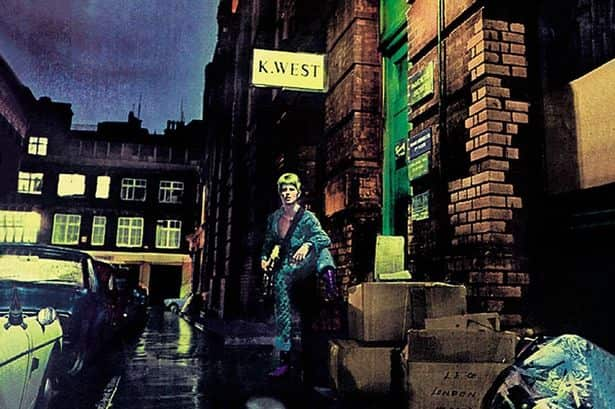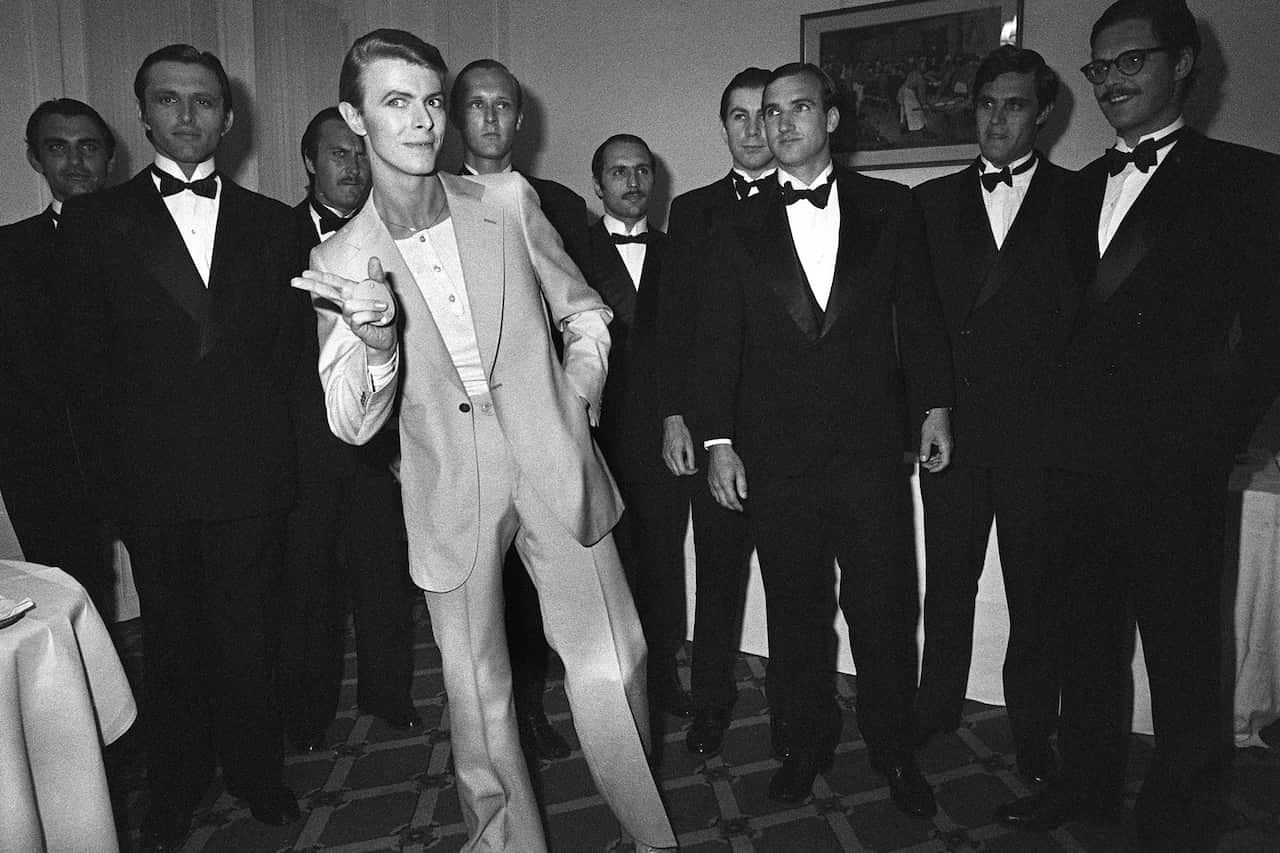

Explainer
Ziggy Stardust to Blackstar: The Sexual Politics of David Bowie
David Bowie's new album, Blackstar, represents yet another reinvention for a rocker who's had an enduring influence on sexual politics.
Published
Updated
A Bisexual Alien Rock Superstar
David Bowie (formally known as David Jones) first hit the stage as a curly-haired folk singer obsessed with space. His first hit, 'Space Oddity', became the BBC’s theme song for the 1969 moon landing, and launched Bowie’s musical career.
Quickly, Bowie left these folk beginnings and began infusing this space obsession with a unique form of rock and sexual politics.
We could see glimpses of this in his following albums, particularly The Man Who Sold The World, in which Bowie adorned the album cover laying gracefully on a couch in a long flowery dress. But it wasn’t until 1972 and the album The Rise and Fall of Ziggy Stardust and the Spiders of Mars that this identity was launched in full. Ziggy Stardust, often argued to be one of the greatest albums of all time, is a unique piece of musical theatre. In Ziggy, Bowie presented the world a “bisexual alien rock superstar”, one who had come to Earth to act as a messenger for extraterrestrial beings.

Over the following years, Bowie famously toured as this character, presenting himself in full “androgynous glory”. In one of his most famous appearances, Bowie sang his song 'Starman' on the British television show Top of Pops. Adorned in a skin tight body suit and placing his arms around guitarist Mick Ronson this performance was a revelation, bringing “outrageous into the mainstream”.
Ziggy Stardust, and the tour that followed, not only turned Bowie into an international superstar, but effectively launched the new genre of glam rock into the mainstream. The old masculine-dominated rock scene quickly became far more androgynous, with rockers experimenting not just with make-up and hair, but with their music, lyrics and sexual personas.
"I'm gay"
It was not long into his career that Bowie’s onstage personas were replicated publicly in his personal life. Despite being married at the time, in early 1972 (a few months before the release of Ziggy Stardust), Bowie came out publicly about his own sexuality. “I’m gay,” he told Melody Makers’ Michael Watts, “and always have been, even when I was David Jones”.
Coming only five years after the United Kingdom had decriminalised homosexuality and on the cusp of the explosion of his career, this statement was huge. At the time this made him one of, if not the only, openly gay rockstar, preceding the often-more famous gay stars such as Freddie Mercury, Elton John, K.D. Lang and Melissa Etheridge (among many others).

Some 35 years later, Watts reflected on Bowie’s statement in The Guardian, arguing it was highly influential:
Did his admission matter? Well, laws on homosexuality had been reformed only five years previously. After Bowie came le deluge. He had shrewdly calculated the consequences, however. Busting taboos stokes the star-maker machinery. He was also just being honest. Sometimes, even in pop, honesty pays.
While this may make Bowie sound cynical, it is important. Bowie was not only the first openly gay star of the time, but this admission did not hurt his career. In fact it likely boosted it. This is huge for the time, and opened the doors for many more gay stars to come.
Photo: David Bowie poses during the 31th Cannes Film Festival on May 30, 1978 (Ralph Gatti/AFP/Getty Images).
The Music
Importantly, Bowie's personal and stage personalities were also reflected in his music. Bowie is best known as an experimental musician; changing his styles dramatically from album-to-album. This occurred in his lyrics as well as his music.
In 'Rebel Rebel' for example, Bowie sings that “you've got your mother in a whirl/she's not sure if you're a boy or a girl.” The chorus goes, “Rebel Rebel, you've torn your dress/Rebel Rebel, your face is a mess/Rebel Rebel, how could they know?/Hot tramp, I love you so!”
Of course this sort of sexually explicit music was not rare at the time. Bowie came after the likes of The Rolling Stones, who sung about some form of sex in almost all of their songs. But Bowie’s differing stage identities and the story-telling mode of his albums allowed him to take this in different directions. He wasn’t just a bisexual alien superstar on stage, he was in his lyrics as well, championing the stories of sexual "deviants" in ways no other musician had really explored.
40 Years Later — The Influence Continues
It’s now 40 years since Bowie toured (and then retired) as Ziggy Stardust. As Ziggy retired so did many of Bowie’s more overtly sexual identities. In the late '70s Bowie became famous as a soul and then experimental musician. In the '80s he became a mass pop-superstar with his album Let’s Dance, later singing duets with the likes of Queen, Mick Jagger and Tina Turner.
Despite this, Bowie’s sexual influence continues. He is and will always remain the first international gay rock star — a leader of his times. His music has influenced rockers for generations, whether it was Queen in the '80s or modern stars such as Lady Gaga, Ke$ha, JayZ, The Killers and The Arctic Monkeys.
But more importantly than that, Bowie had a massive influence on the way we thought not just about sexuality, but about gender as well. He was not just the first gay rocker, he was the first mainstream, gender-bending rocker, challenging traditional notions of masculinity and femininity wherever he went.
Reviewer Andy Gill says that Bowie’s new album “suggests a Bowie desperate to break with the past". With the infused sexual politics however, Bowie seems to be recognising that his influence will be something that will be with him forever. Hopefully we’ll see even more of it in the future.
